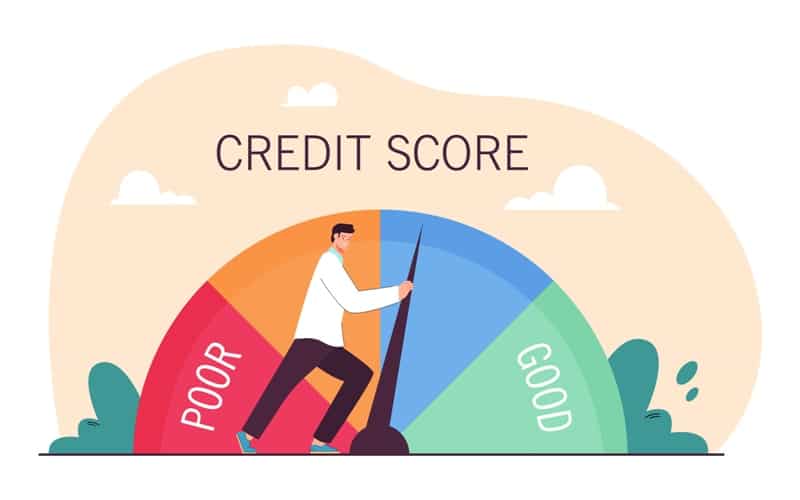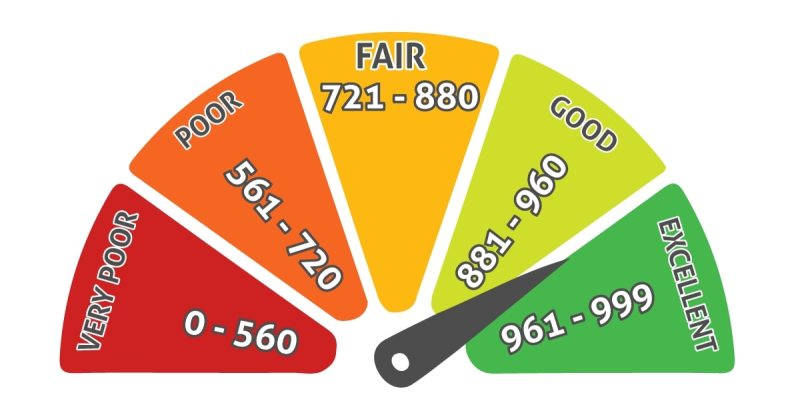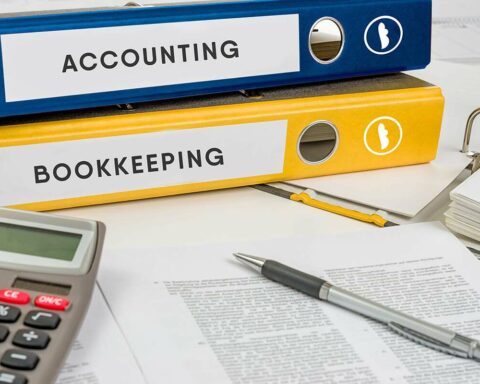Your credit score plays a significant role in determining how hazardous you are to creditors and lenders contemplating giving you a loan or credit line. These organizations have your past payment history and other relevant conduct since they don’t personally know you.
Since FICO is the most widely used credit score, it is what we will concentrate on in this article. Based on your credit history, your FICO credit score will normally range between 300 and 850. A credit score of 750 or more is regarded as outstanding, whereas one of 600 or lower is considered a bad credit risk.
There are certain things you may do to raise your credit score if it isn’t where you would like it to be. You can get numerous advantages by using these tactics.
What are a credit rating and credit score?
A credit rating is a number that represents your creditworthiness. Credit scores get used by lenders to determine whether or not you’re a good candidate for a loan. A high credit score means you’re a low-risk borrower, which could lead to lower interest rates on loans. A low credit score could lead to higher interest rates and could make it more difficult to get approved for a loan.
Having a good credit score can save you money in the long run. It can help you get approved for loans with better terms and lower interest rates. It can also help you get approved for other things, like leases and rental agreements. If you’re trying to improve your credit score, it’s important to keep up with your payments and monitor your credit report for errors.
Why should you improve your credit score?
There are many reasons why you should improve your credit score. A good credit score can help you get a loan, a mortgage, or a credit card with a low-interest rate. It can also help you get a job or an apartment. A good credit score shows lenders that you’re a responsible borrower and likely to repay your debts.
A bad credit score can make it difficult to get a loan, a mortgage, or a credit card. It can also make it difficult to get a job or an apartment. A bad credit score shows lenders that you’re a risky borrower and that you’re more likely to default on your debt.
You can improve your credit score by paying your bills on time, maintaining a good credit history, and using less of your available credit. You can also try to get errors removed from your credit report.
How your good credit score can help you?
A good credit score can help you in many ways. It can help you get a loan for a car or a house. It can also help you get a lower interest rate on a loan. A good credit score can even help you get a job.
A good credit score shows that you are responsible for the money. This can be helpful when you are applying for a loan. Lenders will see that you have a history of making payments on time. They may be more likely to approve your loan.
A good credit score can also help you get a lower interest rate on a loan. This is because lenders see you as less of a risk. They are more likely to offer you a lower interest rate if they think you will make your payments on time.
A good credit score can even help you get a job. Many employers check your credit score when they are considering hiring you. They may view it as an indication of how responsible you are. If your credit score is high, it may give you an edge over other candidates.
Overall, having a good credit score can be very beneficial. It can help you get a loan, a lower interest rate, and even a job.

How to improve your credit score 10 tips
Wondering how to improve your credit score? Here is the list of ways that can help you:
1) Pay your bills on time
Paying your payments on time is one of the best methods to raise your credit score. In reality, one of the factors the credit card bureaus look at when calculating your credit score is your payment history. Your credit score is 35 percent based on it.
Payments that are past due might lower your credit score, even if they are only a few days past due. If you have difficulties remembering when your payments are due, setting reminders may be helpful.
The traditional approach of recording the due dates on a paper calendar or making use of budgeting and bill reminder software are two ways to go about doing this. But setting up autopay on your accounts is the most straightforward choice.
2) Pay more than the minimum
Paying more than you owe each month on your existing debt balance will help you pay off charges more quickly and reduce your overall debt load.
Making larger payments on one account while continuing to make at least the minimum payments on the others will help you concentrate on paying off these sums one at a time if you have many debts, such as multiple credit card bills.
When you have completely paid off one bill, you can go on to another and so on until all of your debts get paid in full.
3) Work on paying off debt
The amount of debt you have relative to the overall amount of credit available is another important component in establishing your credit score. The term “credit usage” refers to how much credit you use.
It’s better if you aren’t close to or at your credit card’s overall limit (s). Utilization is the percentage of your available credit that you are currently utilizing. Both the proportion of each credit card and the percentage of the overall amount of credit are shown.
Utilization ratios are a key factor for creditors and lenders. High usage rates are generally associated with borrowers who are less likely to repay their loans. A person with a low credit use rate is more likely to have a higher credit score.
A $2,000 balance is preferable to a $15,000 one, for instance, if your credit card has a $20,000 credit limit. In this instance, the lesser amount receives a higher credit score rating.
Another factor to consider is the total amount owing on various account types. For instance, having $50,000 in-home debt is preferable to $50,000 in credit card debt.
4) Check for any error on your credit report
One of the best actions you can do to raise your credit score is to ensure that your credit report is current and correct. The typical credit score in the United States is 711, according to the Fair Isaac Corporation (FICO), which offers the credit score model to various financial institutions.
There are several methods to get your credit report, including online businesses that also include identity theft protection and credit monitoring. However, you must exercise caution when requesting a copy of your credit report since you can be persuaded to pay for services that you don’t want.
5) Reduce your debt-to-income ratio
A personal financial metric is known as your debt-to-income ratio, or DTI compares your monthly debt payment to your gross monthly income. Lenders use it as one criterion to assess your capacity to budget your monthly income and make debt payments. DTI gets calculated by dividing your entire monthly recurring debt (including credit card debt, a mortgage, and vehicle loans) by your monthly income.
Lenders and creditors can see that you have a healthy balance between the amount of debt you are carrying and your income if you have a low debt-to-income ratio.
However, a larger debt-to-income ratio may indicate that you have more debt than your income can bear. It increases the danger of financing to you.
6) Have a good mix of debt
Your credit score may benefit more from having a well-balanced variety of debt than from having only one sort of debt.
Credit comes in a wide variety, including:
- Loans for homes
- Cards from banks
- Loan installments (such as vehicle loans and student loans)
- Credit cards for stores and petrol stations
- According to FICO research, individuals experienced with a variety of credit kinds tend to be less dangerous than those who have only used one form of credit.
It is preferable if your overall amount of overdue debt is $150,000 and includes a mortgage, auto loan, and some credit card debt rather than $150,000 in credit card liabilities. Ten percent of your overall credit score gets determined by the different forms of credit you utilized.
7) Keep your credit cards History
The strength of your credit score gets influenced by your credit history. The ages of your loans, credit cards, and other lines of credit will get averaged out by this factor.
A long credit history gives a lender additional data to evaluate your creditworthiness. It may also be a sign that you have effectively obtained and maintained credit over a considerable amount of time.
Even if you aren’t using your credit cards, keeping your accounts open might help you maintain a long credit history. You run the risk of shortening your credit history and damaging your credit score if you cancel outdated credit cards. However, if a credit card has an annual charge and you’re not using it, it might not be a smart idea to keep it open.
8) Don’t Apply for an Abundance of New Credit
Applying for lots of new credit should be avoided, especially if you don’t need it. Lenders perform a hard credit inquiry each time you apply for a new credit account. Your credit score may suffer if you do too many hard credit queries, especially if they happen quickly.
The distinction between a hard credit investigation and a soft credit inquiry must be understood. When you apply for the following forms of loans or credit, hard credit inquiries may happen:
- mortgage
- car loan
- commercial loan
- individual loan
- education loan
- a charge card
On the other hand, soft credit inquiries (which won’t lower your credit score) may involve a:
- Background investigation before hiring
- Background check for apartment rental
- Prequalification for credit
9) Become an authorized user
Your credit score might rise if you become an authorized user on someone else’s credit card account. The payment history of any credit account for which you are an authorized user can be found on your credit report. Your credit score can go up if your payment history is good.
However, if the account holder doesn’t make timely bill payments, this tactic might backfire. If the principal account holder doesn’t make timely payments, both your credit report and theirs will include these missed payments. You should also confirm that the cardholder with whom you intend to collaborate does not have a high credit use percentage.
10) Know where you want to go
Knowing your credit score may assist you in choosing credit products that can help you establish or repair credit, and in making better financial decisions. While you check your credit report for errors, it can also help you maintain a higher credit score.
Knowing your credit score may help you anticipate more accurately if a loan or credit application will get granted and whether you’ll be eligible for a cheaper interest rate when you borrow.

Tips to keep your credit score healthy?
There are a few simple things you can do to keep your credit score healthy. First, make sure you make all your payments on time. This includes credit card payments, loan payments, and any other type of debt you may have.
Second, keep your credit balances low. It means using less than 30% of your total credit limit. Third, don’t open new credit accounts unless you need to. Fourth, check your credit report regularly for errors and dispute any that you find. By following these simple tips, you can maintain a good credit score.
FAQ
Does Paying Off a Loan Help or Hurt Credit?
Repaying an installment loan at a time helps your credit. That’s because on-time payments account for 35% of your credit score. Additionally, your credit score will benefit greatly if you make on-time installment loan payments for five or more years.
How Long Does Improving Your Credit Score Take?
It depends on your lenders, your credit score, and the improvements you’re making. You may often anticipate short-term improvements to your credit score to take one to three months. A single one-time payment can help you establish credit, just as one late payment can lower your score.
What is the fastest way to get your credit score up?
To have those efforts rapidly reflected in your credit reports and credit score, you’ll need to take reasonable action to enhance your credit and then obtain a speedy rescore. Don’t place too much stock in a quick credit rescore if you require a significant improvement in your credit score.
Conclusion
Most people’s lives need them to borrow money and maintain excellent credit. It is crucial to have a strong credit history and keep a good credit score since both may significantly affect your total financial situation, both now and in the future. I hope this article will help you bring your credit up.






